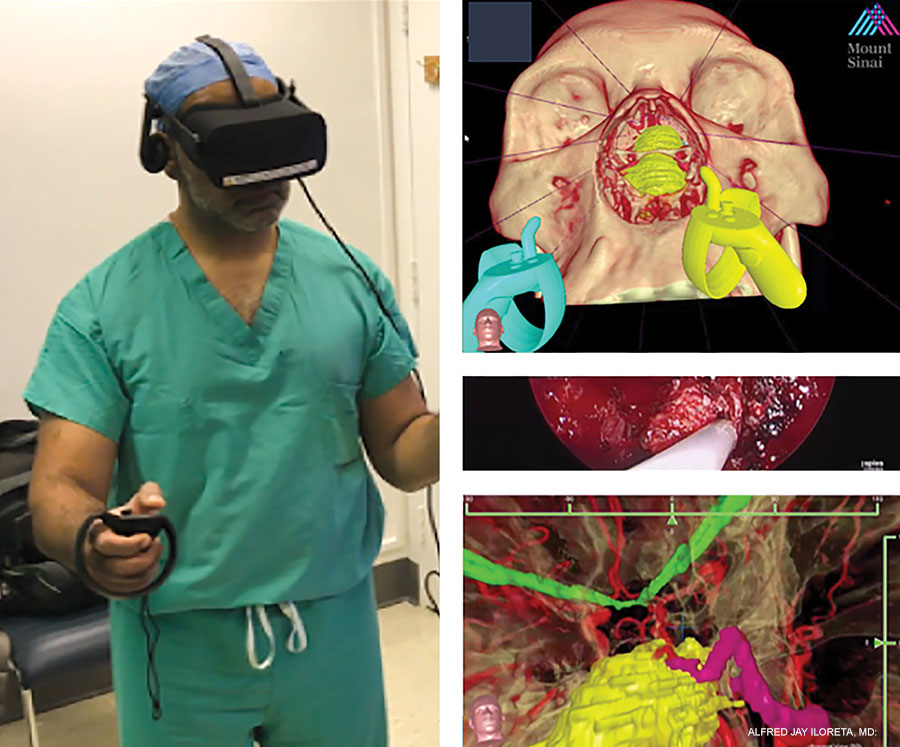Transferable Skills: From Console to Clinic
Playing video games 30 minutes per day for five days may improve medical residents’ fiberoptic intubation skills—and, perhaps, other essential skills.
Explore This Issue
June 2025That’s the perhaps surprising conclusion of a 2019 research study that divided 36 junior anesthesiologists—none of whom had ever performed fiberoptic intubation (FOI)—into two groups. Both groups received similar instructions. Members of the experimental group also played a video game for 30 minutes per day for five days; members of the control group had no video game experience. All residents then performed their first nasal FOI on an anesthetized surgical patient, under supervision. Intubation times were shorter, and first attempts were more likely to be successful for the experimental group compared to the control (Anaesth Crit Care Pain Med. https://doi.org/10.1016/j.accpm.2018.11.012).
Of course, that’s just one small study. A 2021 meta-analysis of 16 studies, though, appears to confirm the utility of video gaming in the development of surgical skills, noting that “a history of gaming and video-game-based training were associated with improved metrics in robotic surgery and laparoscopy” (Surgery. https://doi.org/10.1016/j.surg.2020.11.034).
Video gaming can also foster non-technical skills that are critical in surgical settings. “Most people don’t realize how much situational awareness comes from playing video games with a massive playing field. Somebody who’s playing World of Warcraft or Modern Warfare knows everything that’s going on everywhere. It is tremendous situational awareness that we wish we could teach in healthcare,” Dr. Iloreta said.
Success in multi-player games requires cooperation, communication, leadership, and strategic decision making, and those skills also translate to medical practice. As noted in a 2024 study published in Human Resource Development International, gamers develop conflict resolution, coaching, self-confidence, and problem-solving skills through play, and these skills “spill over to and enrich the work domain” (Hum Resour Dev Int. https://doi.org/10.1080/13678868.2024.2404818).
Clinical Applications: Visualization, Planning, and Patient Involvement
Before a recent surgery, Dr. Iloreta “flew” around a 3-D image of his patient’s brain, carefully plotting his surgical path. He noted any potential obstacles as well as possible workarounds. He created backup plans—a Plan B, C, and even a Plan D—so he could quickly shift his approach during surgery, if needed, instead of wasting valuable surgical time. On this particular day, he used a computer screen and mouse to manipulate and view his patient’s brain. Other days, he dons an Oculus Rift—a now-discontinued virtual reality headset usually used for video gaming—to prepare for surgery.
“With this technology, I can really explore the target pathology and plan my trajectory. Because I’ve modeled the surgery in advance, I can move much faster—and safer—through that case,” Dr. Iloreta said.
While these tools are not yet available to all otolaryngologists, Dr. Iloreta believes they have the potential to improve both clinical outcomes and physician quality of life. The system he uses, for instance, automatically coalesces 2-D CT and MRI images into a 3-D image, allowing him to devote more mental energy to surgical planning.
“Our cognitive capacity is not infinite. When you use AI tools, you can preserve and optimize the fuel in your tank so you can be a better surgeon and better human,” Dr. Iloreta said.
Video game-based technology can also facilitate patient care. Dr. Iloreta uses some of the same technology he uses to plan surgery to educate and empower his patients. “Instead of them seeing a CT scan, they see an entire representation they can recognize. It’s almost a digital twin,” he said, noting that it’s much easier for patients to understand their pathology and treatment options when they can see where a tumor is located or how their sinuses are obstructed.
Most people don’t realize how much situational awareness comes from playing video games with a massive playing field. Somebody who’s playing World of Warcraft or Modern Warfare knows everything that’s going on everywhere. It is tremendous situational awareness that we wish we could teach in healthcare. —Alfred Jay Iloreta, MD
Research by Dr. Iloreta and others also suggests that video games and virtual reality can effectively distract patients and reduce pain during medical procedures. A randomized controlled trial published in Laryngoscope demonstrated that virtual reality significantly reduced pain in pediatric patients undergoing in-office nasal endoscopies, without disrupting procedural efficiency or workflow (Laryngoscope. https://doi.org/10.1002/lary.29148).
The Road Ahead: Barriers and Breakthroughs
Cost is perhaps the most significant barrier to the broader integration of video game technology in otolaryngology. Developing sophisticated, high-quality simulation and gamification modules requires significant investment, and the otolaryngology market is small compared to other medical specialties.
“It’s a challenging business model,” Dr. Simons said.
Hospitals and healthcare systems are also reluctant to invest in expensive tools without a proven return on investment. “They want data to show that this makes surgery faster or safer, but getting that data is fairly hard because of the complexity and heterogeneity of our surgeries,” Dr. Iloreta said. Researchers may need to use different metrics—including biometric data gathered from physicians during surgery— to make the case for high-tech tools.
“When we can show that these tools reduce burnout, improve physician quality of life, improve surgeon ergonomics, and reduce stress, I think hospitals and programs will realize they have value,” Dr. Iloreta said.
To move the field forward, otolaryngologists will need to collaborate with game designers. “They know how to use the tools and push the limits, and they have access to software and technology that we in healthcare don’t,” Dr. Gantwerker said. But game designers don’t know otolaryngology. By contributing their clinical experience and vision, physicians can help build smarter, more effective tools that not only reflect the realities of surgical practice but also shape the future of medical education.
Jennifer Fink is a freelance medical writer based in Wisconsin.

I have often thought about the skills MD’s use in surgery having had those types used in my surgeries and I did think video gaming helped. Good article!